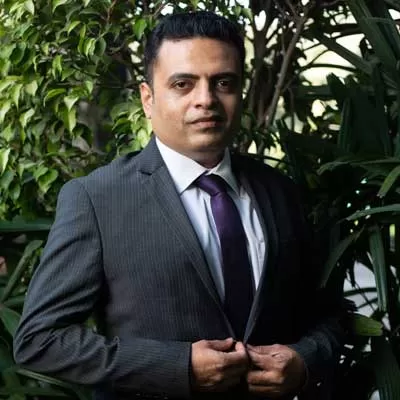CREDAI-MCHI, the apex body of real estate developers, has unveiled its latest research analysis, spotlighting a transformative shift in India's urban housing markets towards luxury and premium properties. The study reveals significant growth in average ticket sizes and total sales values across India’s top seven metropolitan cities during H1 FY2025 (April-September 2024). The data highlights a remarkable 18 percent increase in total sales value, which surged to Rs 2,793 billion, compared to Rs 2,358 billion in the same period of FY2024. Despite a modest 3 percent decline in total units sold, the average price of homes rose sharply to Rs 12.3 million in H1 FY2025, compared to Rs 10 million in H1 FY2024, underscoring the growing preference for premium homes.
Keval Valambhia, Chief Operating Officer, CREDAI-MCHI, said, "The growth trajectory of India’s luxury housing market is a testament to its resilience and adaptability. Buyers are increasingly gravitating towards premium properties that offer enhanced lifestyle experiences and robust investment value. At CREDAI-MCHI, we remain committed to fostering an environment that supports this growth, ensuring a balance between innovation, quality, and sustainability in urban real estate development."
Key Highlights from the Report
The total sales value across the top seven cities surged by 18 percent, reaching Rs 2,793 billion in H1 FY2025, reflecting an increased demand for luxury housing. The average ticket size rose to Rs 12.3 million, marking a significant jump from Rs 10 million in H1 FY2024. In city-wise performance, NCR emerged as a leader, with the average ticket size growing by an impressive 56 percent to Rs 14.5 million and sales value rising by 55 percent to Rs 466 billion. MMR demonstrated its consistency with an average ticket size stable at Rs 14.7 million and sales value increasing by 2 percent to Rs 1,145 billion. Bengaluru showcased robust growth with the average ticket size rising by 44 percent to Rs 12.1 nillion and sales value increasing by 44 percent to Rs 378.63 billion.
Hyderabad followed suit with its average ticket size growing by 37 percent to Rs 11.5 million and sales value increasing by 28 percent to Rs 319.93 billion. Chennai saw a 31 percent increase in the average ticket size to Rs 9.5 million with sales value rising by 20 percent to Rs 90.15 billion. Pune’s market reflected strong growth in the affordable luxury segment as its average ticket size rose by 29 percent to Rs 8.5 million and sales value jumped by 19 percent to Rs 340.33 billion. Kolkata experienced moderate growth with the average ticket size increasing by 16 percent to Rs 6.1 million.
Across the board, buyers are prioritising larger, well-equipped homes in prime locations, signalling a shift towards premium living. The consistent rise in sales value across cities underscores resilient demand for high-end properties even in regions where unit sales saw a modest decline. Cities like NCR and Bengaluru stood out with significant growth in high-value property transactions, reflecting their appeal among affluent buyers.
With rising disposable incomes and a growing inclination towards premium housing, the luxury real estate segment is poised for sustained growth. Developers are urged to innovate, focusing on sustainability, world-class amenities and design excellence to meet the evolving needs of buyers.
The findings of this report reaffirm CREDAI-MCHI’s role in shaping the future of India’s urban housing landscape, fostering informed decision-making among stakeholders and driving the real estate sector towards unprecedented heights.
CREDAI-MCHI is an apex body comprising members from the real estate industry in the Mumbai Metropolitan Region (MMR). With an impressive membership of over 1,800+ leading developers in MMR, CREDAI-MCHI has extended its reach throughout the region, establishing units in various locations such as Thane, Kalyan-Dombivli, Mira-Virar, Raigad, Navi Mumbai, Palghar-Boisar, Bhiwandi, Uran-Dronagiri, Shahapur-Murbad and most recently in Alibag, Karjat-Khalapur-Khopoli and Pen. Being the only Government-recognised body for private sector developers in MMR, CREDAI-MCHI is dedicated to promoting the industry’s organisation and progress. As a part of CREDAI National, an apex body of 13,000 developers across the nation, CREDAI-MCHI has emerged as a preferred platform for regional discussions on housing and habitat by establishing close and strong ties with the government. It is committed to breaking barriers to create a strong, organised and progressive real estate sector in the MMR.The vision of CREDAI-MCHI is to empower the real estate fraternity of the Mumbai Metropolitan Region as it preserves, protects and advances the right to housing for all. To continue being a trusted ally, guiding their members, supporting the Government on policy advocacy and assisting those they serve through the ever-evolving real estate fraternity.





















